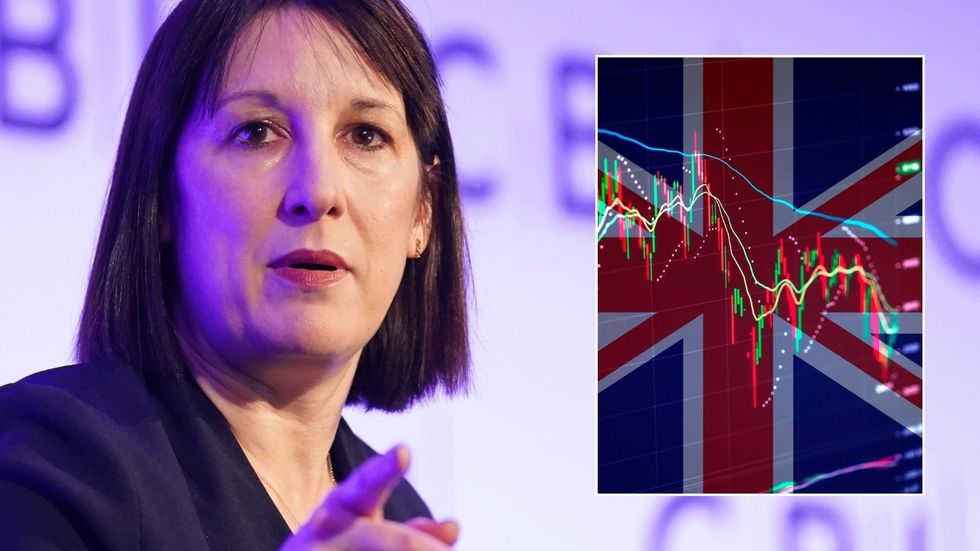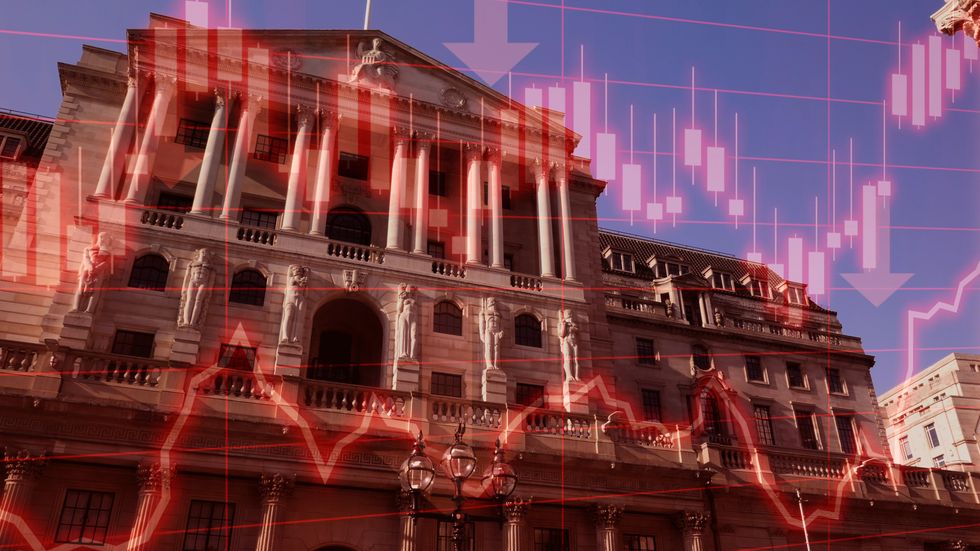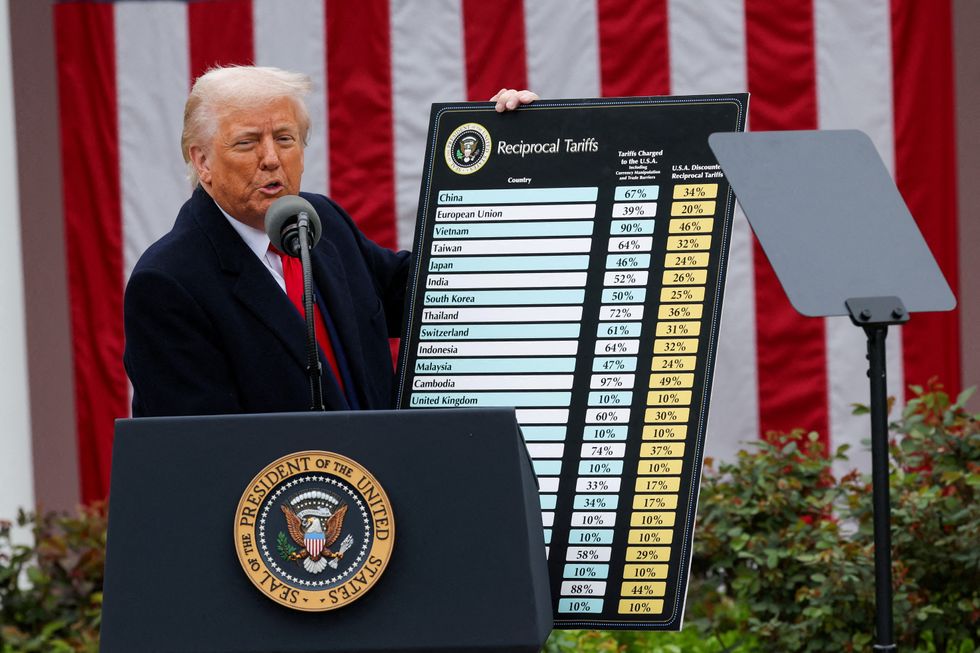UK economy in crisis: Rachel Reeves under pressure as growth forecasts slashed for 2025 AND 2026
Businesses are expected to limit investment over the next two years as a result of the unpredictable global market
Don't Miss
Most Read
Trending on GB News
Britain’s economy is sliding closer to crisis as growth expectations are slashed again in a blow for Chancellor Rachel Reeves.
Forecasters warn that a global trade war and political uncertainty are weighing heavily on recovery.
UK economic growth is set to slow sharply over the next two years as US tariffs weigh heavily on spending and investment, according to new forecasts from EY Item Club.
The respected economic forecaster has downgraded its GDP growth projection for 2025 to just 0.8 per cent, down from the one per cent it predicted in February. The outlook for 2026 has been slashed even more dramatically, from 1.6 per cent to 0.9 per cent.
Recovery from a period of stagnant growth will be directly hampered by US President Donald Trump's trade policies, the report warns.
Economic growth is then expected to rebound to 1.5 per cent in 2027, according to the projections.
Trump has introduced sweeping changes to US trade policy, implementing a "baseline" 10 per cent tariff on imports from most countries around the world.

Rachel Reeves under pressure as growth forecasts slashed for 2025 and 2026
GETTY / PAAbout 16 per cent of UK goods exports go to the US, meaning these new tariffs will directly impact UK growth by reducing demand for British products. UK-produced steel, aluminium and cars face even higher duties of 25 per cent.
The direct hit from these tariffs comes alongside persistent high inflation in the UK economy.
Last week, the International Monetary Fund downgraded its growth forecast for the UK this year to 1.1 per cent, from the 1.6 per cent it had been forecasting as recently as January.
However, EY Item Club warns that the bigger hit to the economy is likely to come from indirect impacts.
The uncertainty created by the new US policies is expected to weigh heavily on both consumers and businesses.
 High interest rates and inflation have impacted Britons ability to navigate the economy GETTY
High interest rates and inflation have impacted Britons ability to navigate the economy GETTY Households remain in a "cautious mood" following the cost-of-living crisis and will likely continue putting big spending decisions on hold.
Businesses are also expected to limit investment over the next two years as a result of the unpredictable global market.
This comes as a separate Ipsos Mori poll found confidence in Britain's economy has fallen to the lowest level on record, with three-quarters of Britons expecting the economy to worsen over the next year.
The UK is less exposed to the tariffs than other countries, but certain sectors are particularly vulnerable, according to EY's report.
Car manufacturing faces a higher 25 per cent tariff rate on exports to the US, making it especially susceptible to trade disruption. Pharmaceuticals are also at risk due to their heavy trading relationship with the US.
 Reeves is working to secure a US trade deal to mitigate the impact of Trump's tariffsREUTERS
Reeves is working to secure a US trade deal to mitigate the impact of Trump's tariffsREUTERSResearch indicates British businesses are responding to potential supply chain disruption by targeting new export markets in Asia, Africa and Australia. Almost 40 per cent of firms polled in a survey by advisory firm BDO expect to increase exports over the next year.
More than one-third of those hoping to boost international sales are aiming for growth in Africa, while 38 per cent intend to increase sales to Australia.
Anna Anthony, regional managing partner for EY UK & Ireland, said: "There had been signs that the economy was exceeding expectations in the opening months of 2025, but a combination of global trade disruption, uncertainty, and persistent inflation look likely to postpone the UK's return to more moderate levels of growth."
She added: "Businesses thrive on certainty, so it's unsurprising that an unpredictable global market is translating into lower levels of business investment over the short term." Despite the challenges, Anthony noted some grounds for optimism.
She said: "The services-led UK economy is projected to see continued growth this year and gradual interest rate cuts should slowly bolster business and household spending.
"Over time, the unpredictable global landscape may offer opportunities for the UK to position itself as a stable, attractive destination for investment."
At the same time, EY said the Bank of England is likely to maintain its gradual approach to cutting interest rates.
Rates are predicted to be reduced to 3.75 per cent by the end of the year, down from the current 4.5 per cent level. These gradual cuts should slowly help bolster business and household spending.







